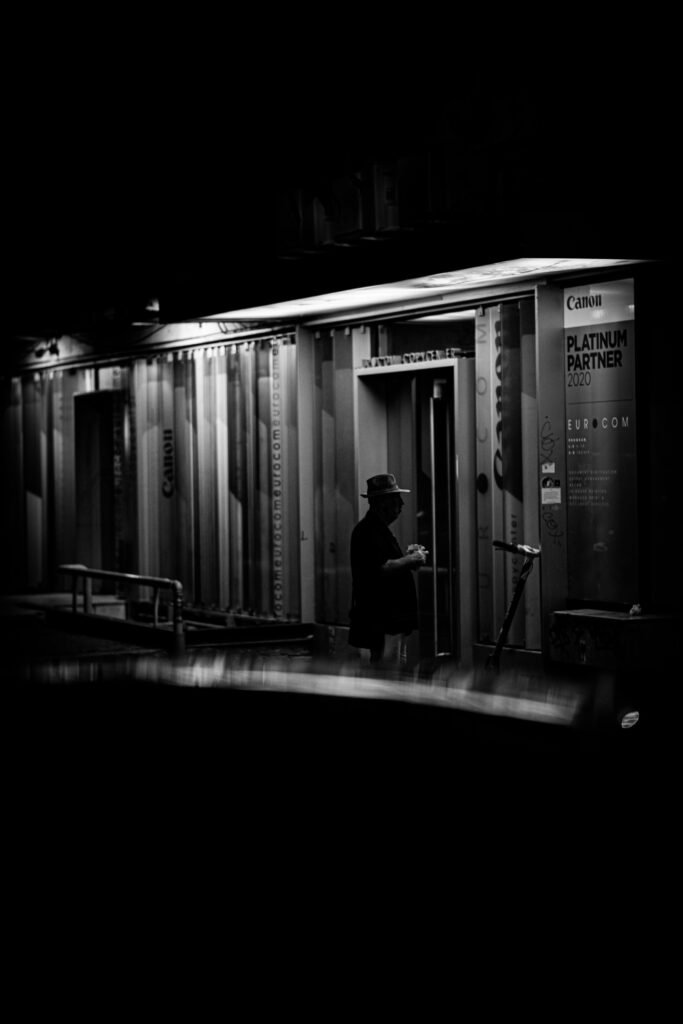Night photography feels easier when choosing subjects, but yet more demanding on perfect camera settings, because the light usually varies in each location. For example, dark alleys might be lit from above, or only have reflected window light, while areas with bars and restaurants might have daytime-level visibility.
After wandering around Bucharest for over two hours searching for photo opportunities, I realized I had forgotten to take a break. Constantly hunting shots while avoiding intruding on people has certainly worn me out.
Taking a break to walk through the quieter parts of the old town revealed what I knew would be my best picture of the day.

The lightning conditions were terrible. However, my positioning was just right, so I caught a few layers, the silhouette and some details on the dark background.
From fighting available light to working with it
Before taking the picture I stopped tweaking the settings, preferring to capture what I naturally saw. Stepped down in aperture, ISO so low I am embarrassed even to admit, I accepted the technical imperfection and went with the shot.
The result was taking on of favorite shots recently. Not to say that I dismissed photos from earlier, and that previous experience from the area did not help, everything adds up. Though 100 awful photos still tell a story, and you can even learn more both about yourself and photography than with taking one perfect photo.
You understand what you want to perfect in future snapshots, what you missed. Maybe the light conditions were demanding, maybe the frame it’s cluttered, maybe the mood is not there, maybe you were not in the right mood to photograph.
Final reflections
It is amazing to see what other photographers are able to achieve using high ISO settings, but I consider myself too old school to artificially increase the brightness of my photographs.
What I understood from cinema is that intentionally poor light can create truthful representation and moods rather than a perfect light that might lose its soul on the way to perfection.
I don’t always capture reality, nor do I always want to. I rarely do. I try to capture emotion, though I often fail. To me, a photographer captures emotion and authentic photography moments before pressing the button.
The photo framing, subject, foreground, background, light evaluation, all happen in the back of the mind subconsciously. The camera becomes an afterthought once you’ve mastered its use. This is similar to driving, where you focus on the road rather than the mechanics.